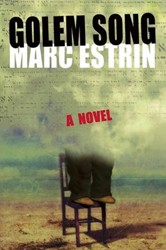Four of Némirovsky’s novels have been gathered in one volume and are newly translated into English from the French. Except for one, David Golder, they are appearing in English for the first time. Most of us became acquainted with Némirovsky’s work with the discovery and publication of her long-lost masterpiece Suite Française, when the manuscript was discovered by her surviving daughter, Helene Epstein. Subsequently, this reviewer was privileged to review Fire in the Blood, another novel, also translated into English by Sandra Smith, which took place in the village where the author took refuge and where her little daughters lived as “hidden children, “ but from which she was deported to Auschwitz.
Némirovsky is a master of characterizations and the ironies of human interaction. She is also a master of mood and scene, of setting the central drama within a framework of poetic, yet detailed descriptions. To read Némirovsky is to enter another era, another place, and to be an immediate observer of the scene, perhaps even an eavesdropper hidden behind an ornate screen, a lamp post on a Parisian street, or perhaps a tree in the garden. Her writing reflects her experiences as a member of a rich, assimilated, barely Jewish banking family who identified with the White Russians and the Tzar and who had to flee for their lives at the onset of the revolutions that rocked Russia. She also identified with immigrants in France, struggling to accommodate to their reduced circumstances. Both themes are expressed in Snow in Autumn. She is able to grasp life’s contradictions— the assassin who becomes fond of the man he has been assigned to assassinate, a man possessed of both evil and compassionate attitudes (The Courilof Affair). Themes of greed and loneliness, of lofty traditions and wealth surrendered to the cataclysm of war, and surprisingly — in The Ball and David Golder, of mother/daughter conflict, as well as scorn and ridicule of the Jew, two themes that populate her novels.
David Golder is the novel that established the author’s reputation in France in 1929 when the author was twenty-six. Its plot could be read in any society gossip column today — a self-made multi-millionaire businessman, a by now loveless marriage, disappointment in children, failure in business… Golder is a ruthless but brilliant businessman who deals with Russia and oil. He is heartless and his denial of a partnership deal with his former partner results in the latter’s suicide, but Golder, himself, will suffer illness and business reversals, personal disappointment and heartbreak. Yet, the author pulls it all together with a tawdry, but “socko” ending.
The Courilof Affair is fascinating. An old, tubercular revolutionary recalls how he was once drafted to assassinate Courilof, one of the Czar’s officials, a man responsible for sanctioning the murder of demonstrating students, among other acts. The agent infiltrates the official’s household by assuming the role of physician, ministering to his target, Courilof, who is suffering from liver problems (a cancer, but he is not to be informed of the real source of his illness). Complicating matters is that while awaiting the signal from his handlers, the agent becomes oddly fond of his target. Again, it is the author’s masterful handling of characterizations and her ability to grasp life’s contradictions, that captivate.
Snow in August brings the reader into the heart of a wealthy Russian estate belonging to the Karine Family. It is mid-winter and some of the former serfs have remained behind. The home, a shadow of its previous history and its noble family, is tended to by the elderly nanny, Tatiana Ivanova, who still inhabits it. As she helps the two sons, Youri and Cyrille, whom she raised since infancy, depart for war against the Bolsheviks, she reflects on the departure and loss of her earlier charges, generations before. One of the sons, her favorite, will be lost. The family has fled to Kiev, where the faithful servant will bring them their last jewels sewn into her skirt. Ultimately they will all end up in France, struggling to begin again with nothing after the money made by sale of the jewels is expended. Tatiana, who knew every cupboard, every piece of furniture, and every childhood incident on the Karine estate, has become superfluous in France, although the family cares for her and includes her in their family.
The Ball is the least of these novels. A nouveau riche couple pretends to status and the wife, portrayed only a cut above the famous Cinderella’s stepmother, plans to have a grand ball commensurate to their newfound wealth. She has her daughter write out all the invitations, although the girl is treated badly by her mother and is not invited to the event, or indeed to occupy her regular bedroom but must sleep in an outsize closet. Circumstances prevail where the daughter unexpectedly is asked to mail the invitations by her governess, busy with a tryst. The girl delivers one, to her music teacher, a poor relative with good connections to whom the mother wishes to show off. The rest she delivers in carefully torn pieces to the river. Roles are reversed as the mother, sure that society has scorned them, seeks comfort from her daughter. The introduction by Claire Messud gives further insights, while the chronology provides: date, author’s life, literary context, and historical events from 1903 to 2007.




